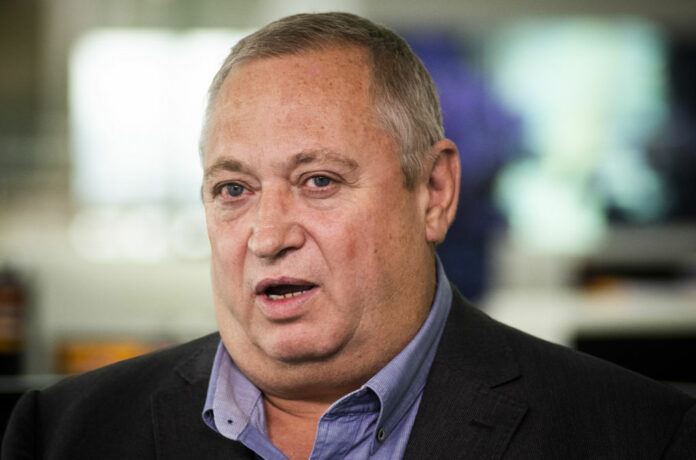
SIBANYE-Stillwater has invested R425m (€25m) in a French electric vehicle battery manufacturer which will be supplied with battery metals mined and processed from assets in which the South African group has a stake.
The miner said as part of its annual results announcement today it had purchased convertible bonds in Verkor, a company with France’s government as a shareholder. It plans to build a 16GWh ‘Gigafactory’ in the country’s Dunkirk region.
Neal Froneman, CEO of Sibanye-Stillwater told Miningmx today that the firm’s Keliber lithium project in Finland and its Sandouville nickel processing facilities in France had been credited as suppliers to Verkor.
“We want to be part of the ecosystem in Europe,” said Froneman who added that Sibanye-Stillwater wasn’t looking for control of downstream facilities. “This doesn’t require majorities,” he said. “We’ve got an open mind. Right now Sandouville and Keliber have been credited [to supply Verkor]”.
The investment in Verkor is one of two initial investments made by a new fund established by Sibanye-Stillwater called BioniCCube.
Capitalised with 1.5% of adjusted EBITDA, equal to R1.7bn based on the group’s 2021 financial year, BioniCCube will target market development and research and development opportunities, Sibanye-Stillwater said.
The Gigafactory will start producing batteries in 2025 with a view to expanding output to 50GWh in 2030. This timeline meets first production from Keliber in which Sibanye-Stillwater has a 30% stake. Froneman said in the firm’s full year presentation today that he would exercise an option for control of the R6bn project once a feasibility study had been completed on the project later this year.
“They are in sync,” said Froneman regarding Keliber, Sandouville and Verkor.
Sibanye-Stillwater reported record headline earnings of R36.9bn for the 12 months to December representing a year-on-year increase of 27%. A final dividend of R5.3bn or R1,83 a share, was declared taking the total dividend to R4,79/share or R13.8bn.
Froneman said the company did not expect to distribute special dividends whilst it still planned to grow its battery metals portfolio. Speaking to Mininingmx, Froneman said that the pace of transactions to which Sibanye-Stillwater committed to last year “… would continue this year if we can find them”.
No deal was imminent, he said.
A transaction that didn’t proceed was the proposed $1bn acquisition of two base metal mines in Brazil. Sibanye-Stillwater withdrew from the deal in January citing a “geotechnical event” at one of the mines – the Santa Rita nickel operation.
The seller Appian Capital Advisory, a UK fund, may progress a $1.2bn claim against Sibanye-Stillwater on the basis of “false, damaging and defamatory” allegations. Froneman confirmed the two sides had “exchanged letters”.
“Most M&A transactions have a clause that if there’s a material adverse change or effect post the signing of agreement it’s your right as buyer to exit the transaction. That’s what happened. The geotechnical event we deemed as material,” said Froneman.
“I see absolutely no reason why this should affect our ability to do future transactions,” Froneman said. “These things do happen. From our shareholders, we will have full backing as the valuation considerations were very disciplined.”
Stillwater mine disappointment
Sibanye-Stillwater’s financial performance in the 2021 financial year was based on strong platinum group metal (PGM) prices. However, its US Stillwater mine reported PGM 2E production of 570,400 oz which was at the lower end of revised guidance.
For 2022, production from the mine is expected to come in at between 550,000 and 580,000 oz which is well below the 800,000 to 850,000 oz that was scoped for the mine when Sibanye-Stillwater paid $2.2bn for it in 2016.
Sibanye-Stillwater said it was conducting a review of the mine
“I’m not disappointed. I’m disappointed that we’ve had a deterioration in safety and now together with rampant inflation and a shortage in labour. We are going to have to change our business model. We are not going to produce ounces at all costs,” he said.
The mine has to employ more contract labour which is more expensive. At the moment, Stillwater had margin but Froneman said “the price for palladium will change” and then we will have very expensive labour. Reducing future production was to ensure the mine was profitable through the PGM cycle.
“Stillwater is exactly what we thought it was,” said Froneman who added that the mine had “already paid for itself”.









